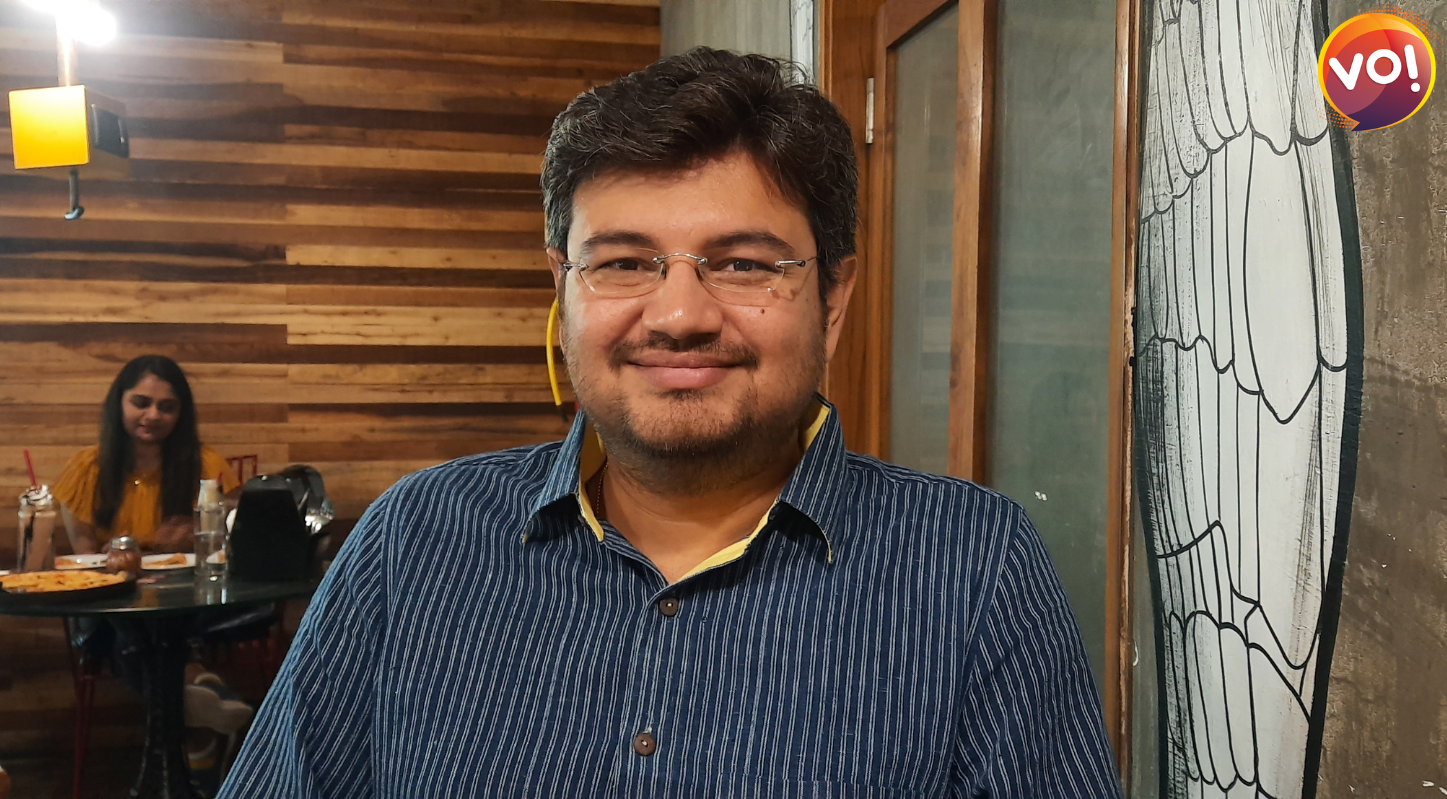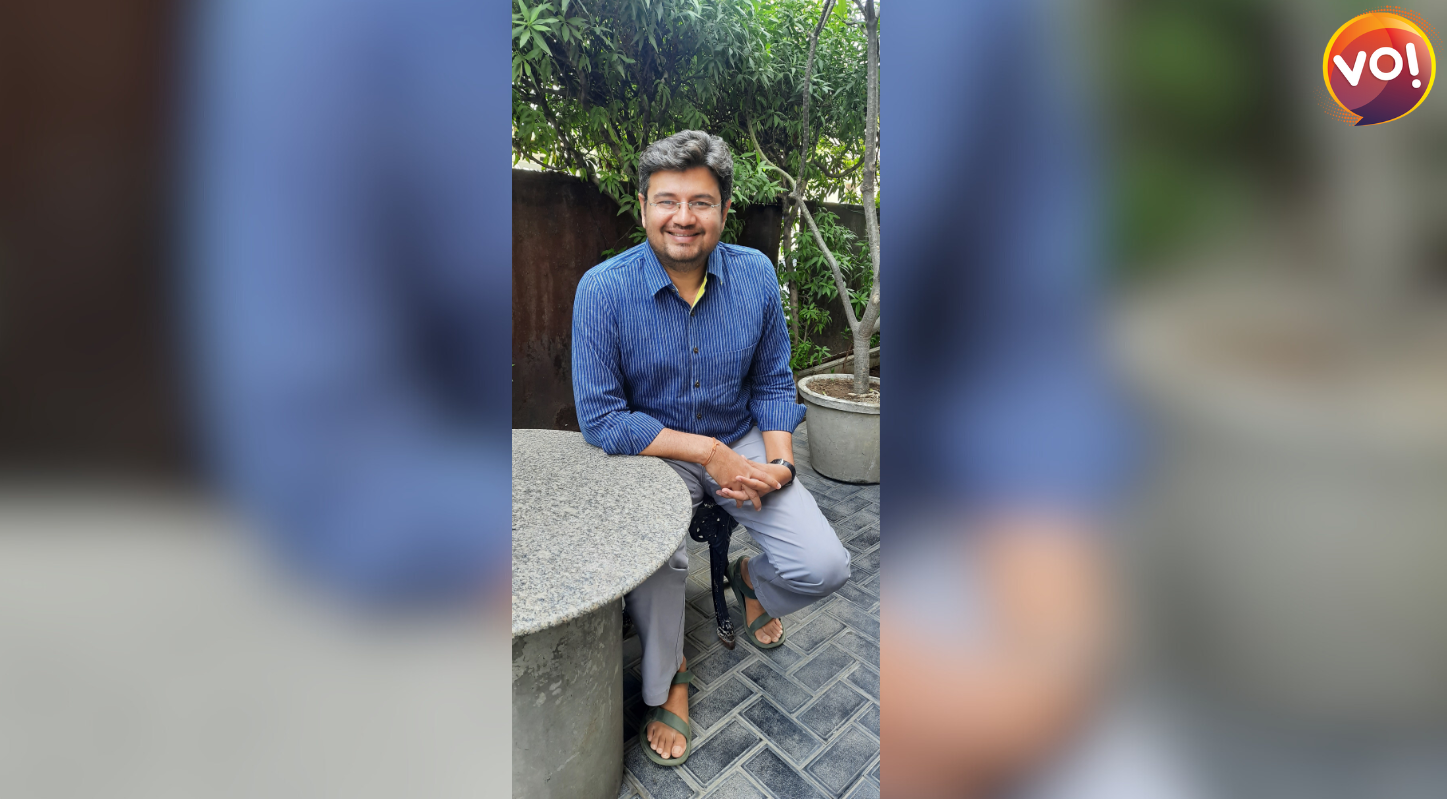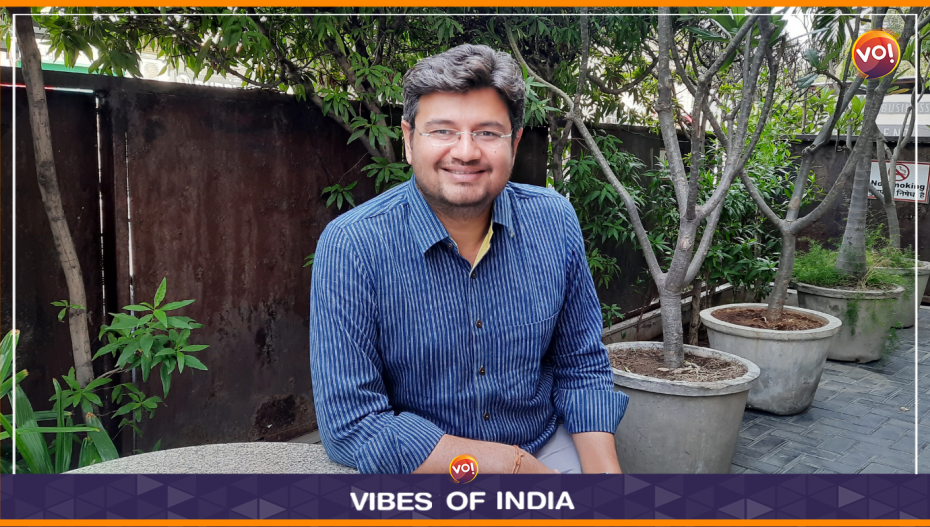In 2016, two years before the hit Akshay Kumar starrer Padman brought menstrual hygiene into the mainstream, a young academic was busy doing a baseline research study on the subject in Ahmedabad. Arpan Yagnik, a graduate of MICA, was then a doctoral student in the area of development communication at Bowling Green State University, Ohio, and his aim was to figure out ways to destigmatize menstruation. Seven years down the line, Dr Yagnik is considered an expert on the subject, guiding several Indian research scholars. The 38-year-old academic is currently in Ahmedabad on a sabbatical from Penn State University, Erie, where he teaches advertising & communication. In an exclusive interview with VO! Dr Yagnik talks about development communication, Manushi Chillar and why we are so afraid to be creative.

VO!: How did you come to do a PhD on menstrual hygiene communication?
Dr Yagnik: I went to Bowling Green to do a PhD under Professor Srinivas Melkote, who taught a course at MICA. He is an expert in the field of development communication and has written a text book that is considered the Bible on the subject. It’s about using communication for social development and recognises that what works in one part of the world need not work in another. I especially wanted to work on health issues and I chose menstrual hygiene because there was a buzz around the topic. Some eyebrows were raised, but it didn’t bother me. I’ve never been interested in masculine topics like automobiles and real estate. I am more interested in feminine topics. In my growing years in Ahmedabad, I was influenced by some very strong women including my mom, my sister, my cousins.
VO!: What were the findings of your study in Ahmedabad?
Dr Yagnik: Ahmedabad was a baseline study to find out prevailing attitudes through a structured questionnaire covering 400 participants in the 18 to 50 age brackets. We found that knowledge of menstrual hygiene was sub-par and attitudes were negative. Men are either indifferent or oblivious but it is the older women who are responsible for perpetuating a tradition that treats the subject as taboo. They still follow old rituals of isolation. The focus of my research was the role of media in destigmatising menstruation. Those days, even the top international brands perpetuated menstruation as a villain. In the ads, a happy girl would become sad and anxious when she had her periods. The hero of the story would be the sanitary napkin, which made things all right again.
VO!: Have things changed since then?
Dr Yagnik: Recent ads in the media don’t portray menstruation as negative. A lot of work is being done on the issue by NGOs like Goonj. A graduate of NID Ahmedabad has designed an excellent comic book called Mensrtupedia. Manushi Chillar, Miss World 2017, has taken up the cause through her Project Shakti. Then there was Padman in 2018. We are working against deep conditioning. It is like homosexuality. The stigma is deep rooted but attitudes are changing. A lot of convincing still needs to be done.
VO!: Is the Padman model of local manufacture of sanitary pads working?
Dr Yagnik: It is working only in small pockets. The Ministry of Women & Child Development has started a scheme to distribute subsidised sanitary pads among poorer women, at a price of Rs one. Pads have always tended to be expensive and unaffordability is the main reason they are not widely used in India. World-wide, the market is an oligopoly, led by multinational companies like P&G and Unilever. It is a product that requires heavy marketing.
VO!: Is your research work still focused on menstrual hygiene?
Dr Yagnik: It was my dissertation topic and I continued to work on it for five years. I still guide some students. For example, I am in touch with two students at LSR College Delhi who are working on sustainable menstrual cups. But now my research focuses on creativity. Since I came to India on sabbatical last year, I’ve been conducting training workshops in creativity, using a method called Creative Aerobics. Most of us are afraid to be creative. I have authored a book in Gujarati on the subject with my aunt Priti Dave, titled Vateyaksh.

VO!: Why are we afraid to be creative?
Dr Yagnik: It is the fear of rejection. When we come up with a creative idea, we get attached to it. But if we have hundreds of creative ideas, we don’t mind a few getting rejected. Having only one good idea is the greatest poverty. I’ve prepared a document called Creative Bharat Mission, which I would like to present to Prime Minister Modi. It presents ways in which we can make India a creativity-driven economy.
Also Read: Hollywood Veteran Robert De Niro Welcomes 7th Child At 79













